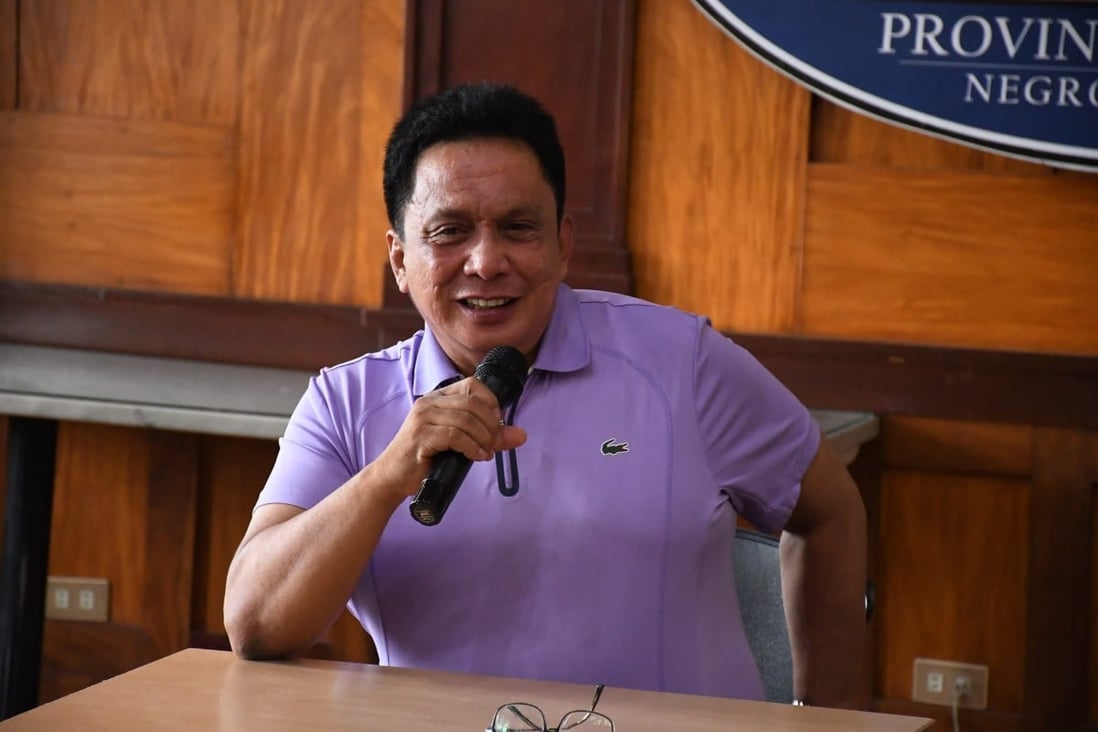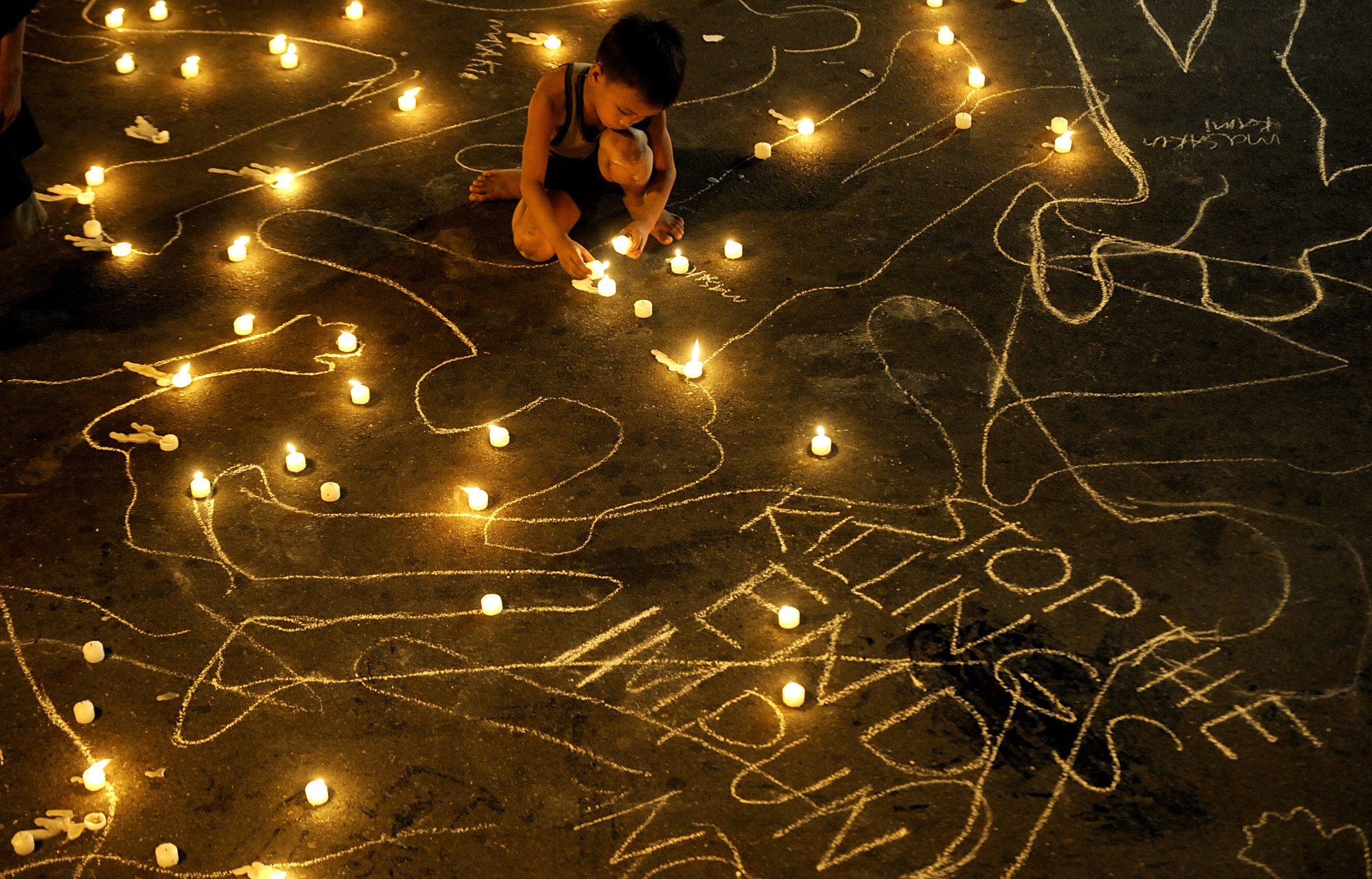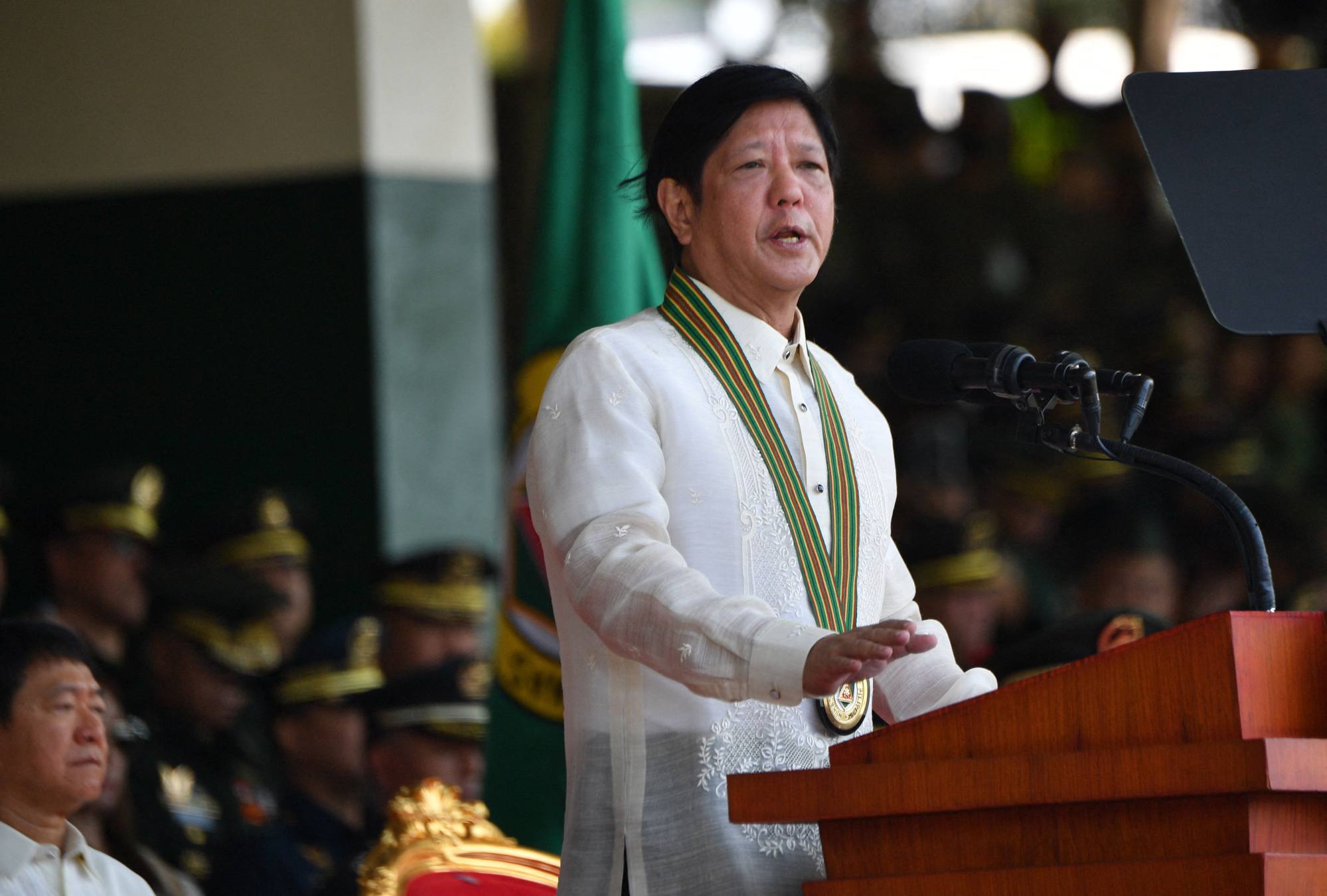Such attacks are ‘nothing new’, analysts say, citing 2009 massacre of 58 victims ahead of local elections, Marcos Snr’s rise to power on back of political violence
Presence of ‘fat political dynasties’ a major risk factor for murder as power is concentrated among a few influential families at top levels of government, study notes
Raissa Robles
30 Mar, 2023

Philippine Governor Roel Degamo was shot dead on March 4.
Photo: Facebook/Governor Roel Ragay Degamo
The recent murder of a Philippine governor has shone the spotlight on assassinations as the “normal” way for “fat political dynasties” to deal with opponents, throwing a wrench into efforts by President Ferdinand Marcos Jnr to combat violence in the country, analysts have said.
On March 4, four gunmen entered the home of governor Roel Degamo and opened fire, killing Degamo and eight others. Sixteen people who were there to receive government aid were also injured.
Justice Secretary Jesus Crispin Remulla on Monday named Congressman Arnolfo Teves Jnr, Degamo’s political opponent, as one of the masterminds of the murder. However, he has yet to be indicted.
The recent murder of a Philippine governor has shone the spotlight on assassinations as the “normal” way for “fat political dynasties” to deal with opponents, throwing a wrench into efforts by President Ferdinand Marcos Jnr to combat violence in the country, analysts have said.
On March 4, four gunmen entered the home of governor Roel Degamo and opened fire, killing Degamo and eight others. Sixteen people who were there to receive government aid were also injured.
Justice Secretary Jesus Crispin Remulla on Monday named Congressman Arnolfo Teves Jnr, Degamo’s political opponent, as one of the masterminds of the murder. However, he has yet to be indicted.
Remulla also said he would look into at least 17 possible cases of political murders in the central Philippine province of Negros Oriental, where Degamo was governor, after his widow Janice accused Teves Jnr of at least 30 previous killings in the province.
While the death of Degamo sparked a public outcry for justice, such political assassinations were “nothing new”, said Ramon Casiple, co-founder of political risk analyst firm Novo Trends PH.
“This happened in Ampatuan, this happened in the past,” he said, referring to the 2009 massacre in the southern Philippine town of Ampatuan in Maguindanao province, when 58 victims on their way to file a certificate of candidacy on behalf of a politician challenging the Ampatuan clan were kidnapped and later killed.
It took 10 years for a Philippine court to sentence two senior members of the Ampatuan clan to life terms without parole, and 43 others including police officers to up to 40 years in jail.
But these convictions – the first time political warlords in the Philippines were held accountable for such killings – had not discouraged similar attacks “because that’s normal in our politics”, Casiple said.

A boy lights a candle during a vigil to commemorate the second anniversary of the Maguindanao massacre, near the Malacanang palace in Manila on November 23, 2011. Photo: AFP
The Ateneo School of Government in Manila found the presence of “fat political dynasties” – where two or more members of the same clan occupy elected posts – as a major risk factor for murder.
Ronald Mendoza, who led a 2022 study on political violence in the country from 2004 to 2018 when he was Ateneo dean, said it showed there was “strong evidence that political power concentration [proxied by the presence of fat political dynasties] leads to weaker governance … The resulting environment is thus associated with higher risk for political violence”.
Authorities have attributed the motive for Degamo’s death to the removal of Teves Jnr’s younger brother Pryde Henry as the governor of Negros Oriental in October last year, with the Commission on Elections proclaiming Degamo as the real winner of the 2022 gubernatorial race.
Teves Jnr, who is still abroad, has refused to return home, saying he fears for his life. In a Facebook video on March 21, the 51-year-old lawmaker claimed the order to “frame him” was hatched right inside the Philippine presidential palace, although he said the president was not involved.

Janice Degamo, the wife of Philippine governor Roel Degamo, cries for justice during his funeral in Siaton, Negros Oriental, on March 16, 2023. Photo: AFP
Marcos Jnr dismissed his claims and urged him to return to face the allegations, otherwise “the government would be left with no choice and move without any discussions with him”.
Carlos Conde, senior researcher for the Asia division of New York-based Human Rights Watch, said Marcos Jnr’s response to the Degamo killing needed to be “calibrated” as the Teves family “are not inconsequential people” in Philippine politics.
Casiple also warned there could be more violence as “the string of events have not fully played out”.
Government archives show the Teves family’s political dynasty dates back to 1946 when Arnolfo’s Jnr’s uncle Lorenzo became congressman. Lorenzo would later become a staunch political ally of Marcos Jnr’s father when the latter ruled as a dictator.

Philippine President Ferdinand Marcos Jnr. Photo: AFP
“Whatever fallout [this assassination would have] will depend entirely on how the Marcos administration handles this, but I’m afraid it’s just going to be one of those instances of political violence that we see all too often,” Conde said.
“If anything, though, I think this distorts the image that Marcos Jnr has been trying to present to the public and the international community – that he is a different president, that the Philippines is working to try to get past its sordid and violent history in the past six or so years.”
Conde pointed to the 1935 assassination of Julio Nalundasan as an example of how Ferdinand Marcos Snr – the current president’s father – rose to power in the 1960s on the back of political violence.
Nalundasan was killed by a sniper the day after winning the congressional race over Mariano Marcos, Ferdinand Snr’s father.
The fatal bullet was traced to a gun missing at that time from the state university’s armoury. The gun had been assigned to the young Ferdinand Snr, who was a member of the school’s shooting team.
Philippines President Marcos Jnr defends father’s martial law legacy
14 Sep 2022

“Political violence like this, indeed, is the chicken that has come home to roost for Marcos Jnr,” Conde said. “It may seem ironic but what it is is more than irony – it is history repeating itself over and over again. That’s just how political violence is in the Philippines.”
A 2019 study by Ateneo found that by that year, members or leaders of political dynasties comprised 80 per cent of governors, 67 per cent of vice-governors, 66 per cent of congressmen and 54 per cent of mayors.
This was evident even in the top levels of the Philippine government, with Marcos Jnr, his vice-president Sara Duterte and five other cabinet members all heads or members of political clans.

Philippine Vice-President Sara Duterte is among a number of government officials who are part of political dynasties in the country. Photo: EPA-EFE
Justice chief Remulla, who is probing the previous alleged murders by Teves Jnr, is himself the scion of an influential political family. Remulla’s late father Juanito was a close political ally of Marcos Snr as governor of Cavite province, southwest of Manila. The justice secretary’s son Crispin is a congressman while his younger brother, Juanito “Jonvic” Jnr, is the Cavite governor.
A 1998 study by political scientist John Sidel showed the province gained a reputation as “Murder, Inc” in the 1990s.
“Violence, intimidation, and fraud have consistently played a decisive role in elections in Cavite, and politicians in the province have been frequently involved in assassinations and in lucrative illegal rackets,” Sidel had concluded.

Raissa Robles has written for the SCMP since 1996. A freelance journalist specialising in politics, international relations, business and Muslim rebellion, she has contributed to Reuters, the Economist Intelligence Unit, Daily Mail, Times of London, Radio Netherlands and Asiaweek. She runs the award-winning investigative and opinion blog, raissarobles.com. Her book, Marcos Martial Law: Never Again, a brief history of the dictatorship won the 2017 National Book Awards for Non-Fiction. Her Twitter handle is @raissawriter.
No comments:
Post a Comment